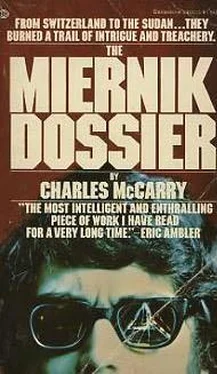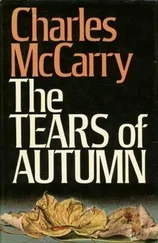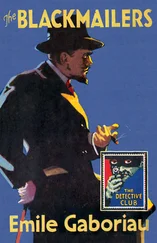76. FROM THE FILES OF CHIEF INSPECTOR ALY QASIM.
On the morning of 11th July I flew in a police aircraft to El Fasher and thence by helicopter to the palace of the Amir of Khatar. My departure from Khartoum was precipitate. At five-thirty in the morning I received a telephone call from the prime minister. He was in a state of alarm. The Amir had wakened him ten minutes earlier with a radio-telephone call. Prince Kalash had been attacked near Kashgil by a band of six armed men. He had killed four of his attackers and was unhurt himself. Both the Amir and Prince Kalash connected this attack to my plan to infiltrate the prince into the Anointed Liberation Front. They demanded an explanation. I was instructed to satisfy the Amir that the prime minister was taking measures to ensure the safety of Prince Kalash.
Within fifteen minutes I was dressed and en route to the airport, where the aircraft was standing by. As my car travelled through Khartoum the muezzins were making the call to prayer. My driver looked anxiously in the rear-view mirror, anticipating an order to stop by the mosque, but I had no time even for that. I told him to drive on.
I had left instructions for a detail from Special Branch to proceed to the scene of the attack on Prince Kalash to carry out an investigation. I ordered the pilot to overfly Kashgil, and after some searching we located the site. There were four bodies scattered over the floor of a wadi. They had been abused by the jackals. The clothing was strewn about. As we flew over the scene at low altitude, vultures rose from the corpses. It was apparent that my men would find very little evidence, but I radioed the location of the dead and gave instructions for the investigating team to travel by helicopter so as to reduce the time element.
I arrived at the palace at approximately ten o’clock. It was not until three o’clock that my uncle, the Amir, received me. I had in the meantime been offered no refreshment. These signs of the Amir’s displeasure were underscored when I happened to encounter Prince Kalash in an anteroom. He was accompanied by the three male foreigners who have been travelling with him. With no regard for their presence, he immediately began to berate me. “I will tell you, since the collection of the simplest information seems to be beyond your capacities, that you very nearly got all of us killed,” Prince Kalash said. “Your Communists are very bad shots. Otherwise I and my friends here would be dead.” I made a ritualistic reply, as I knew that the man Miernik understood Arabic. “God is great,” I said, attempting to give Prince Kalash a warning glance. One does not warn princes; they say what they like. “I shall be interested to hear from you how these Communists knew precisely where to find me in a thousand square miles of desert,” Prince Kalash went on. Finally I managed to quieten him. He went away with his friends.
My interview with the Amir began on a painful note. I had, of course, anticipated his anger. Prince Kalash, after all, is his eldest legitimate son. The Amir has trained him since birth for the succession, and he is pleased with the result as only a father can be who sees in his son a version of himself. That this son had nearly met a meaningless death was most upsetting. The Amir himself had put Prince Kalash in death’s way by agreeing so casually to let him be used against the Communists. He was responsible for the prince and he had very nearly lost him. The Amir now needed someone to blame for his own mistake. So it is when things go wrong for the powerful.
The Amir is modern to the extent that he does not require educated men to prostrate themselves on approaching him. Ordinarily I should have stood upright in his presence; on this occasion I lay face down at his feet. “Get up, get up,” the Amir said. “I want to see your face.” He handed me a photograph of Prince Kalash. It was soiled and cracked as if from much handling. “This was found by my son on the body of one of the assassins,” the Amir said. “Explain.”
“I can speculate, Highness,” I said. “But I cannot explain. Who knows what thoughts such men have? We know that these terrorists are looking for a figurehead, some great figure to give respectability to their activities. That is why Prince Kalash was approached, with your gracious consent, to assist us in destroying this so-called Anointed Liberation Front.”
“Their purpose was to kill Prince Kalash,” the Amir said. “That much should be plain even to a civil servant like yourself.”
“With respect, Highness, that is not plain at all.” Here I was able to play the card that in the end saved the situation. “We have laid hands on one of the assassins who escaped. He is in fact under my control. Unfortunately he was unable to inform me in advance of this attack upon the prince’s camp-I say ‘on the prince’s camp’ advisedly, for such was the nature of the enterprise. There was no intention to harm Prince Kalash. The intention of the terrorists was quite different. Nevertheless, had I known beforehand of this plan I should have taken steps to prevent it. There was too much risk in it for the prince. I blame myself most severely that he was subjected to the smallest danger.
“Prince Kalash has no doubt omitted to tell you of his extraordinary courage in the face of this attempt. While the assassins were shooting into the camp, Prince Kalash stood upright, faced them, and returned their fire. The terrorists were less than fifty yards away. Surely they could have killed him easily had that been their intention. But I believe they had orders that forbade any harm to the prince; had they injured him, much less killed him, they would have answered with their own lives.
“No, Highness. These murderers did not intend to kill Prince Kalash. They had instructions to capture him. Undoubtedly their plan was this: to take the prince to their headquarters, use the name of el Khatar as a blessing on their organisation and their activities, and perhaps in the end collect a ransom if they failed. They wanted to kill the Europeans. I know for certain that they were under orders from their masters, the Russian espionage apparatus, to kill all but one of Prince Kalash’s friends. We have not been able to learn which of the Europeans was to be spared. But the prince himself they wanted alive.”
All of this was quite true. The man who furnished the information was a constable of Special Branch named Mahjoub Mirghani. On my orders Mirghani had insinuated himself into the ALF; on fleeing the scene of the attack he had abandoned his companion and made his way to our headquarters at El Obeid. I was in possession of his report only a few hours after the shooting affray. The Amir received my information in his usual way; his blood and his life school him never to show surprise. He sat impassive while I spoke, no muscle of his body or face betraying the slightest movement.
“Do you believe they could have succeeded?” he asked. “With better planning and more skill, and in the absence of my Constable Mirghani, who opened fire before the order was given in order to warn Prince Kalash-yes. But they did not in fact succeed.”
“Then you believe that Prince Kalash, even with his friends dead at his feet, would have surrendered to these fools?”
“That, of course, was the unknown factor.”
“You do not know my son. He would have died before submitting to capture. I admire your police work. It is impressive that you have all this information. But if a prince is murdered no good comes out of knowing who killed him. Prince Kalash would certainly have died along with his friends if the fight had gone the other way. Then what would you have told me? That his death was a mistake? I should not have been comforted.”
Читать дальше












